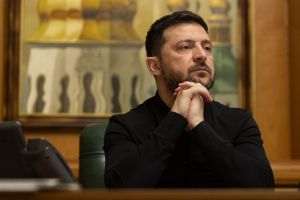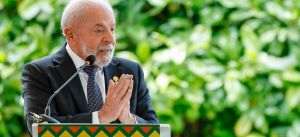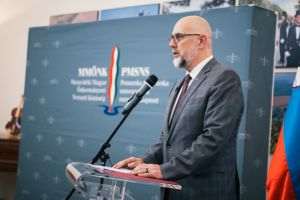I wish you a happy new year!
Many happy returns!
It just so happened that the first part of this Episode was published a little before Christmas and New Year's Eve, and now BURSA is publishing the other part, in its first issue for the year 2015, meaning that I have mentioned this move to a new year between the good wishes, phrased in this article.
To complete the symbol, I want to mention that according to the Jewish tradition, 2015 is "the seventh year", the sabbatical year, the year of the forgiveness (from debts), the year of the release from debt, the year of generosity, the year of the Shmita as a manifestation of the covenant with God.
This second part of the 3rd Episode is somewhat excessively made up of "technical" - so-to-speak - NOTES, thus containing information and explanations of a logical, meta-logical and epistemological nature, which I thought I had to provide to our readers with (who I am aware are specialized in a completely different field), so I can move on to the 4th episode, in which I hope I will make the connection between faith, reason, social structure and what, in my opinion, is the crisis it is going through.
I think that, in doing so, I will emphasize the importance of the intention of the Catholic and Orthodox Churches to reunite, which I expect could have major practical consequences, including for business.
Just like up until now, I am warning readers that reading the NOTES can be difficult and it is not required for understanding the article.
But I think it would be a shame not to give them a cursory read, because, along with the information that is common in this field, I have taken the liberty of my own observations and interpretations, which are not found in the writings of other authors.
• THE PARALYSIS OF REASON
I agree with Rebecca Goldstein, who, in "Incompleteness: The Proof and Paradox of Kurt Gödel"/ 2005, considers Kurt Gödel as "the most famous individual you've never heard of".
In my opinion, the works in mathematics, logic and metalogic of Austrian Gödel (born in Brno, in 1906, died in Princeton, USA, in 1978), concerns us more directly, more personally, than Albert Einstein's "Theory of relativity", whom he was a colleague of, for that matter, (as a professor at Princeton University), a close friend, and apparently they have even cooperated in the field of mathematics, in elaborating his theory, even though the logician was pursuing projects in his own field.
At age 25, Gödel cut down mathematics' claim of being a unitary body that could develop "ad infinitum", by building "the incompleteness theorems" within the mathematics of "Principia Mathematica" type (Bertrand Russell and Alfred North Whitehead, on the fundamentals of mathematics, three volumes published in 1910, 1912 and 1913), theorems that establish the need for the incompleteness of principle any theoretical deductive system (a system containing the numbers' theory, but every contemporary theory dreams of being expressed in mathematical form), to ensure non-contradiction and decidability (the establishing of the truth value - truth or false) of a theory's claims (see the explanations in NOTE 4).
NOTE 4
Gödel showed that the sentence that presents "The liar's paradox" can be built using systems based on "Principia Mathematica".
His first theorem of incompleteness:
"In any consistent axiomatization [our note: - that is non-contradictory] of the theory of numbers, there are true sentences, but which are not formally demonstrable".
His second theorem of incompleteness
"The consistency of a theory of numbers can not be demonstrated through that theory itself".
The two "theorems of incompleteness" formally demonstrated by Gödel can be expressed in layman's terms in one sentence: "Any deductive theoretical system, sufficiently complex to contain the theory of numbers, fatally runs into undecidable sentences" (in other words, it encounters sentences/theorems on which it cannot formally decide whether they are true or false, thus ruining the goal of the theory).
Deductive theories are structured in axiomatic systems, built upon a set of axioms, to which a set of rules of derivation /combination are applied, to create new sentences - theorems -, whose truth is guaranteed by the compliance with the consistence (non-contradiction) and completeness criteria of the system.
The formal scheme of a deductive theory:
I. The axiomatic part:
1. The terms that are not defined;
2. Primitive sentences (axioms);
3. Derivation rules:
a) for notions (definitions);
b) for sentences (deduction rules).
II. The derived part:
4. The terms that are being defined;
5. The demonstrated sentences (theorems).
In the first part of this third episode (see BURSA /23.12.2014), in NOTE 3, I have mentioned the Megarians' paternity of the "Liar's paradox", its enunciation being generally ascribed to Eubulides (sometimes to Epimenides, according to other sources, and Diogenes Laertius is uncertain on whether he should ascribe it to Chrysippos himself): "I am lying".
In trying to determine the value of truth of this sentence, we find that, if it is true that "I am lying", it follows that "it is true that I am lying" and therefore, I am lying, and in the event that "I am lying" were true, it follows "I am lying when I say I am lying", and thus I am telling the truth.
Thinkers from every age, for over two thousand years, have struggled to "solve" the problem and to dismantle the paradoxical reasoning, trying to find its "mistake"; in the field of logic, it does not exist; the paradox was eventually reworded ("I am now saying a falsehood"), to prevent its resolution using ethics, because the notion of a "lie" involves a moral component (there are numerous examples wordings and phrases, created with the same purpose of "improving" it).
It has been said, more recently (for instance, by Alexandre Koyré, 1892 -1964, in "Epimenide le Menteur"), that it was only contemporary authors have turned "the liar", from a Greek "plaisanterie", into a grave (and non-existent) issue.
That this isn't the case is proven by the attention that the ancients gave it (of whom Chrysippos has dedicated an impressive number of studies to it, and Philetas died following his unsuccessful efforts to "resolve" the paradox), as well as the following Aristotelian text from "the Nichomachean ethics" (1146 a), referring to the paradox:
"For thought finds itself bound in this case, because, on one hand, it can not appease itself with the doubtful conclusion and yet, unable to weaken the presented argument, it finds itself unable to move on".
This stupefaction, this deadlock of reasoning was (syntactically) rebuilt by Kurt Gödel in the very field of mathematics, and since mathematics is an essential tool in the deductive theoretical systems, the "Liar" infects them all.
Without justifying himself, referring to the "Liar's paradox", G.W.F.Hegel (1770-1831) recommended avoiding it and not dealing with it (there are philosophers that lost their minds by studying it too deeply, and besides, Indian pandits use logical paradoxes for illumination - which represents failure, because success is represented by losing one's mind, as a sign of spiritual elevation to divinity).
The contemporary multiplication of mathematics (there is no longer just one mathematics, it has split into several) is the practical solution adopted by theorists (in implicit agreement with Hegel's advice), to avoid "the liar".
Gheorghe Enescu (1932-1997), former professor of logic at the Faculty of Philosophy of Bucharest, an author of countless studies dedicated to logical mathematical antinomies (paradoxes), considers that the problem of resolving paradoxes expands, going into the far wider field of the construction of scientific systems, in which the goals are protecting science against contradictions, guaranteeing the truth of knowledge, the role of logic in the progress of science, as well as, in particular, in the perfecting of the means of reason and language -, an opinion which I find is not exaggerated.
• THE UNEXPECTED COINCIDENCE BETWEEN ORTHODOXISM AND METATHEORY
Modern science is no longer interested in the likeliness of the axioms it starts off from, instead it adopts explanatory hypotheses as axioms, even if they flagrantly contradict common sense (for example, the Michelson - Morley experiments for measuring the Earth's absolute speed led to the absurd result that the Earth is still, which led to the introduction of the arbitrary axiom of the contraction of the dimensions of a moving body in relation to its speed, the axiom which Einstein admitted could not be verified or confirmed).
Gödel's theorems have often been abused through illicit extrapolations into areas in which they had no applicability: to some, the incompleteness has been extended to the Bible, but, even though there are authors that claim that, in the original, the Torah (the Old Testament) would also have had an arithmetical expression, still, in its form that is accessible to us today, it has nothing to do with Peano's theory of numbers or with Boolean algebra, nor does it present itself as an axiomatic system, conditions which are assumed by Godelian systems; to others, incompleteness theorems prove the limitations of what computerization can do in mathematics, but not the limits of man (see Finnish Jaako Hintikka and his former assistant, Romanian Gabriel Sandu), but of course, the science of calculability evolves, meaning that this would not be the path to prove the existence of "the divine glimmer" within man,.
A coincidence makes it that orthodoxy accredits the idea of the connection between "the divine spark" and the state of surprise over what cannot be logically conceived, ,when it says (just like Islam) that God can not be understood rationally, but instead everyone gets him according to their abilities.
To Dyonisius the (Pseudo)Areopagite, as well as to Ibn al Arabi, god is not bound by logic's law of non-contradiction (see NOTE 5), and Orthodoxism accepts that he is beyond description, making the paradoxical situation of the trinity (that is one) as a boundary of reason, meaning that getting closer to God occurs beyond reason, through a higher level experience of the soul.
NOTE 5
The general principles of thought (the laws of logic):
The validity of the laws of correct human thinking depends on the relative stability of the object of thought.
As the object evolves, the laws of formal thinking have to be integrated in systems of laws of a superior level.
1. The law of identity:
Any thing is identical to itself and only itself.
(Correct thinking maintains the same meaning of a word within one and the same act of thinking).
2. The law of non-contradiction
A thing either is or is not, at the same time.
(Two judgments, of which one denies the other, can not both be true).
3. The law of the excluded middle
Out of two judgments of which one denies the claim of the other, one of them is necessarily true, no third (possibility) is given.
4. The law of sufficient reason
Everything must have a reason or a cause.
(Similarly, any reasoning must have a basis consisting of evidence, arguments).
However, the coincidence is only partial: the orthodox belief does not claim that undecidability (and stupefaction before the paradox) is "ontological" of the presence of "the divine glimmer" within men, which is the interpretation some contemporary philosophers have made of the Gödelian theorems (perhaps because they didn't understand their area of applicability - see for example, the confusion in the claims of Horia-Roman Patapievici), but instead, just sets the benchmark of the search for god, resorting to imagination and art (which, we have to admit, aren't reason, nor science, even though they don't deny them).
Still, the optimism of calculability, just like the solution proposed by Hintikka and Sandu (replacing the existing logic with a richer one, called "IF" - " independence-friendly logic"), do not spare us from the feeling of "deadlock of thought", described by Aristotle before the "Liar", just like the solution by calculating limits, in the case of Zenon of Elea's (490-430 i.e.n.) "Achilles and the turtle" aporia, falls together with the satisfaction of a resolution at the level of common sense (see NOTE 6).
NOTE 6
Achiles will never outrun the turtle.
He must first travel half the distance which the turtle started off from. Meanwhile, the turtle will gain an advance, replicating the initial situation on a smaller scale. Achilles will keep getting closer to it , but will never reach it.
The argument even works if the turtle remains still at its initial position and I've never understood why nobody made that observation.
The aporia was enunciated by Zenon among the arguments against movement, but, according to the reported by Diogenes Laertius, it would seem that the Eleatic philosopher was not denying the existence of movement, but rather our possibility to conceive it in our minds.
Some philosophers (see also Henri Bergson) have explained their aporia as a contradiction between the discreet (discontinuous) nature of space and the continuous nature of movement - a conceptualization level where I think it would be good to remind the fact that the notions of "space" and "time" exceed the level that is accessible to the common sense and become relatively uncomfortable.
At the common sense level, I am rather inclined to say that Achilles will outrun the frog, but will never catch it, because every one of us has their own personal space, which can not be invaded even through torture.
In my opinion, Zenon is the one who revolutionized the ancient mentality, in which all the positive notions were aligned (whoever is beautiful, then they are also honest, fair and brave), opposite the negative ones (whoever is ugly, is also a liar, unjust and cowardly), ripping them apart and laying the way to the current relativizing European mentality.
Among the three versions about his death, Diogene Laertius also recounts this one: Zenon, tortured and tightly bound, is brought before the tyrant of Elea, whom he had plotted against, and he is asked, before the court, who else he has plotted with: he points at one of the tyrant's confidants, the executioner takes off his head and the tyrant once again asks, "And who else?"; the scene happens again, over and over, until all the members of the royal court are executed, with Zenon, the executioner and the tyrant being the only ones left in the throne room; when the tyrant asks once more, "And who else?", Zenon answers "And you, you poison of the Earth!", thus completing his plot.
Zenon behaves in a paradoxical manner, like a "loyal liar", and the story must have had a connection to the "Liar's paradox".
I expect that, just like the snake sheds his skin, (in the Minoan, Jewish and Christian cultures, the snake is also a symbol of wisdom, and the Torah associates it with the Tree of Knowledge and its temptation), just like that thought leaves its form behind, when it tries to judge itself; it leaves below the signs that have carried it, empty, to be archived, ready to revive it (like any will brings back thoughts that are no longer "in actu").
Besides, the perplexity when asked "What do I think of when I say < < I > >?", because, outside of a few needs that are shared by the species (and hence, inherited) and temptations (instincts that are socially converted), we only find the internalization of the environment and what remains ours is the way we process them, as it is hard for us to flesh out our "self" as an entity and to establish a precise boundary between the inside and the outside.
If, out of what I've said, anyone comes to the conclusion that I am saying that rational thought is limited in its scope, then it means that I must have not expressed myself correctly somewhere; I believe that reason can continuously travel what we call "reality" and "facts of consciousness", guided by the beam of light created by our specific experiences, derived from the way we are made.
The feeling of "being stuck in of rational thought" experienced (particularly) by those who have strived to develop the former, (but I think it indistinctly manifests itself on any cultural level) leads to a different feeling which impugns on the human condition - the one of "imprisoning" between the walls of reason, an imprisonment out of which, sacredness appears as a way of escape.
Which is what Orthodoxy indicates, as a heir to a millennium-old intuition.
AUTHOR'S NOTE
In the beginning, I promised that I would write a fourth episode as well, but, I expect those who have read the initial ones, have become accustomed to my going back on my promise at the end of each article, releasing me from my obligation.
Thus, if I no longer continue, or if I don't write about what I promised I would, you won't have anything else to criticize me for, except what I have already written.
You can't fault me for what I haven't written.
























































